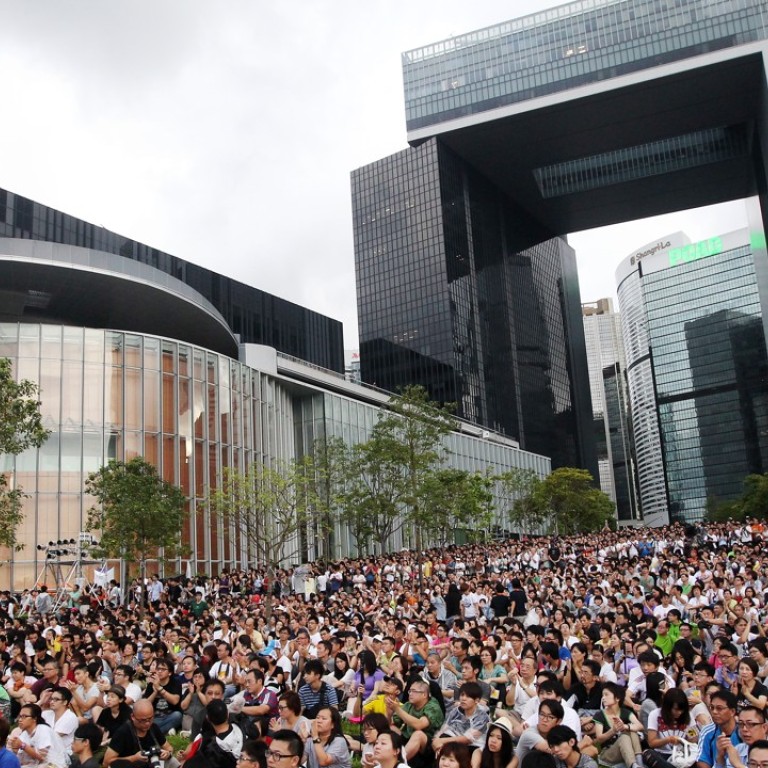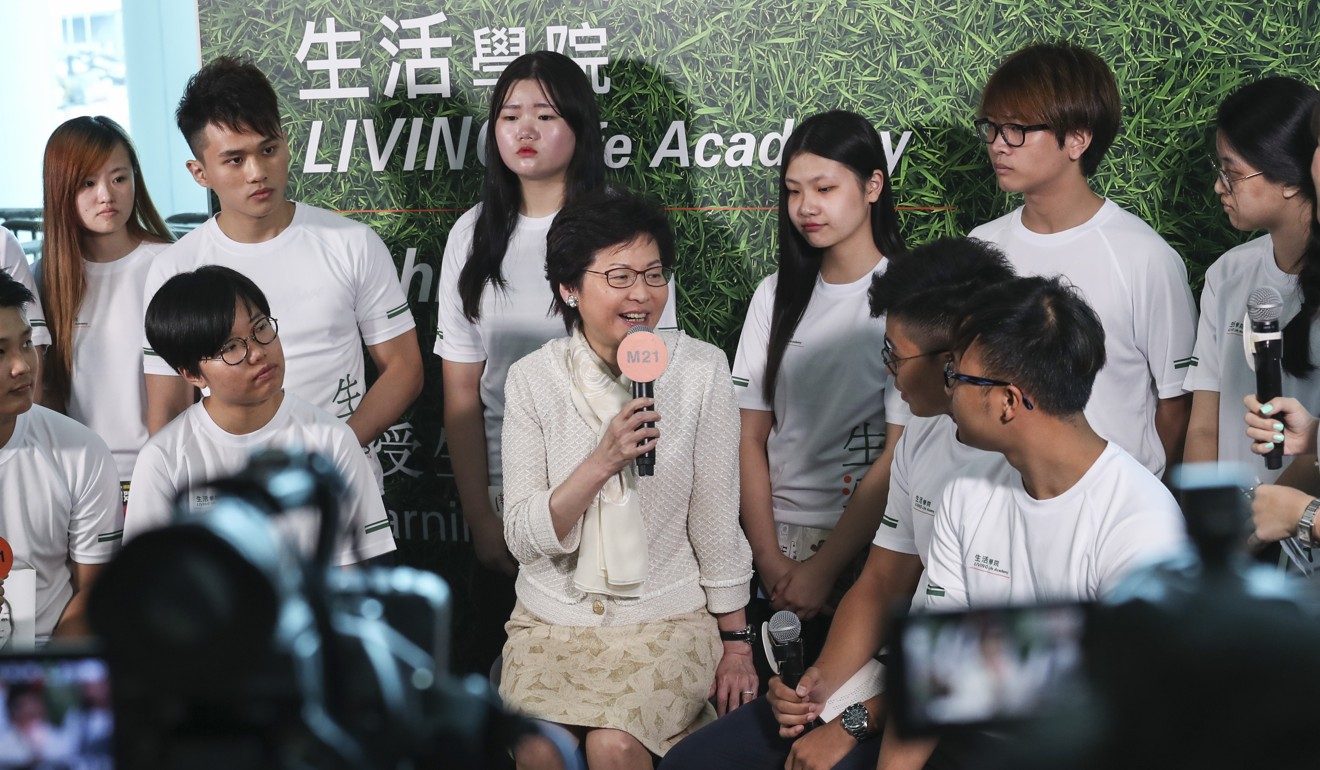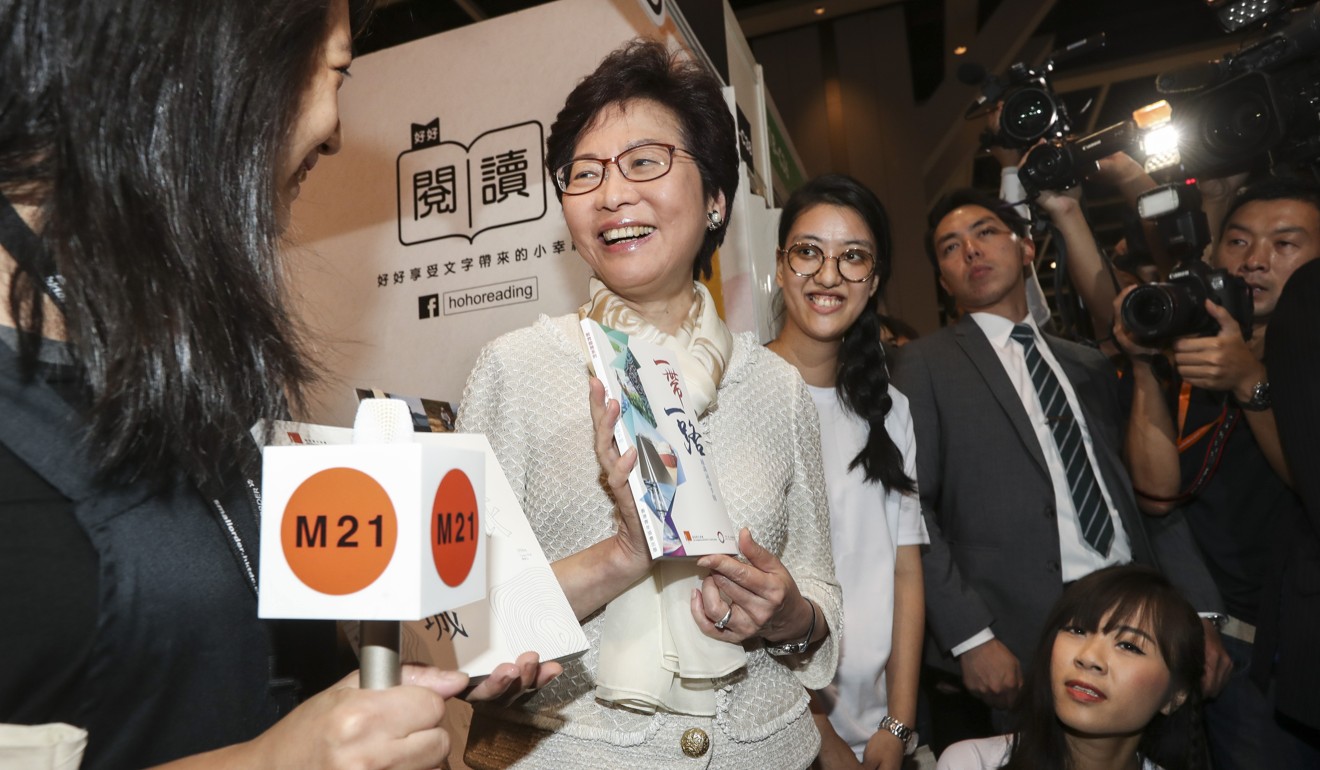
Young people lament lack of influence in shaping Hong Kong policy, survey shows
Study shows they feel their sway over policymaking is at lowest level in five years
The influence young people feel they have on policymaking in Hong Kong is at its lowest level in five years, a study has found, and they remain dissatisfied with the performance of the government.
But their confidence in the city’s rule of law and satisfaction with quality of life are at their highest since 2012.
The study, titled the Youth Quality of Life Index, was carried out by the Centre for Quality of Life, part of the Institute of Asia-Pacific Studies at the Chinese University of Hong Kong, and measured young people’s perceptions of life in the city.
The latest edition was released on Thursday after the centre interviewed 1,002 youngsters aged between 15 and 24 by phone in May and June.
It looked at eight areas of life including 28 sub-indicators such as physical health and politics. The overall score for life satisfaction in the 2016-17 financial year was 100.42, an increase of 1.31 points on the previous year, and the highest figure since the study’s base year of 2012-13.

Among the 28 sub-indicators, the index measuring youth perceptions of their impact on government policy fell by 1.63 per cent, to reach a score of 2.74, compared with the 2.79 in 2015-16 and 3.125 in 2012-13.
“The index fell to a low level ... More than 65 per cent of the youngsters said they had a small influence in formulating policy. They had a feeling of disempowerment,” said centre director Professor Wong Hong.
“They find it difficult to influence policymaking and make changes to their future.”
How Hong Kong officials can change to connect with the young
The index measuring “government performance” slightly increased, by 1.88 per cent, to post a score of 2.319, but remained at a very low level compared to the 3.125 in 2012-13.
Hong Kong leader Carrie Lam Cheng Yuet-ngor has pledged to provide a platform for the younger generation to participate in politics and allow them a bigger say in policymaking.
Her first major initiative was to recruit about 20 to 30 young people to be placed in a policy and project coordination task force under the Central Policy Unit, a government think tank. Her administration is also eyeing bringing youngsters onto advisory committees.

But Wong said such measures were not enough to engage the youth.
“The government has also hired young political assistants ... but I do not think that youth engagement is about having young elites join advisory committees. Their voice should be from all classes including the grass roots of society,” Wong said.
Form Four pupil Comson Or Yan-lung agreed with Wong, saying elite students joining committees would only account for a tiny number of the city’s young people, and most would not reflect the thinking or background of the general population.
Inviting young people into advisory bodies not enough to engage Hong Kong’s alienated youth: former minister
“If the government really wants to know what we think, they should come to our schools and speak to us. Generally speaking, officials do not really know what we want,” Or said.
The rule of law index jumped 8.14 per cent, to reach 3.22, its highest in five years. Wong attributed the high to the time at which the study was carried out – just after seven police officers were convicted of beating a protester involved in the Occupy pro-democracy civil disobedience movement of 2014, in which young people had been a driving force.
“The interviewees might have thought the city was performing better in terms of rule of law due to their feelings on recent social issues, even though they were asked about their views over the past year,” Wong said.
“If we did the interview at this point, I am sure the index would be different.”

